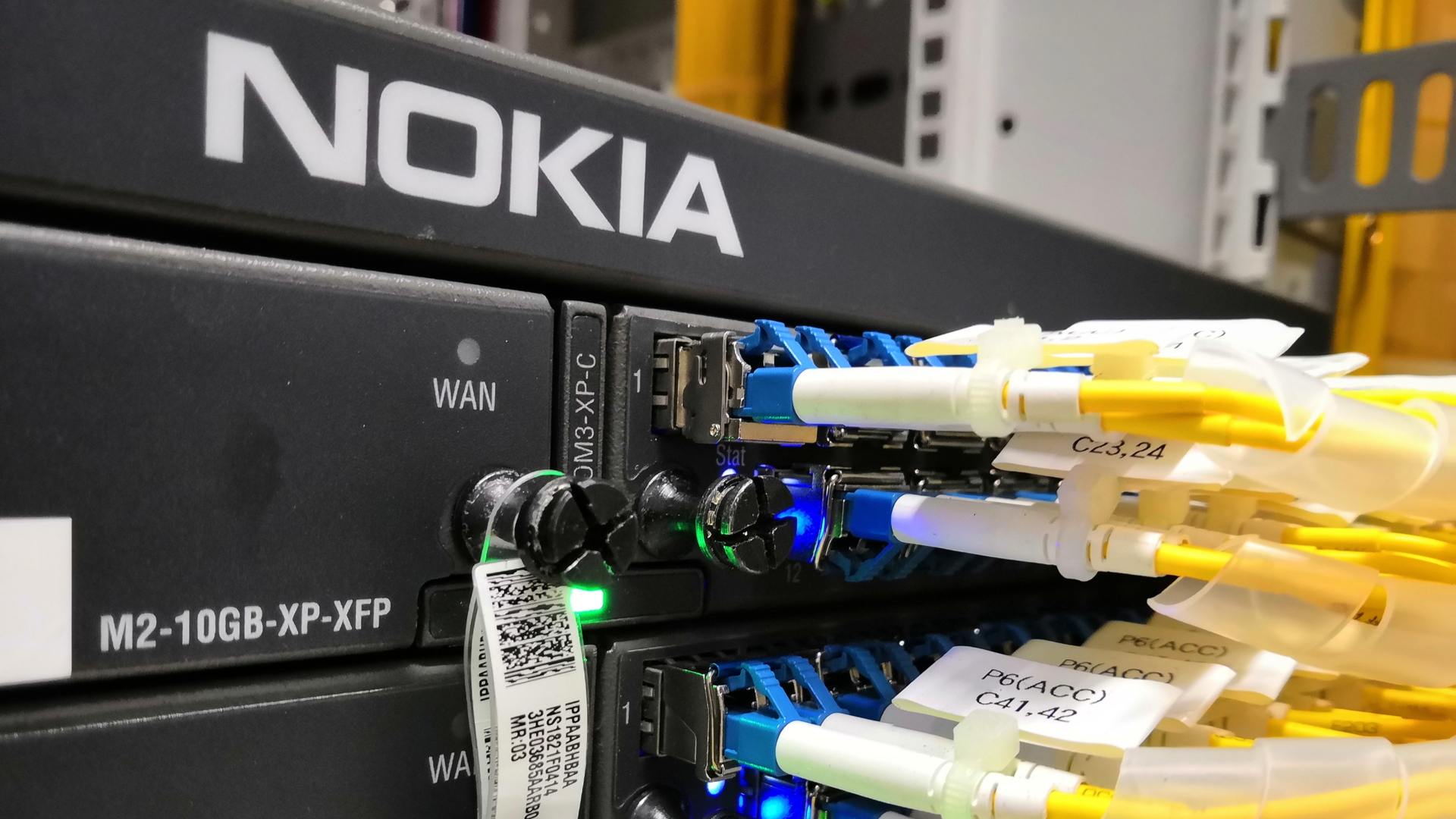Static IP vs dynamic IP: What is my static IP address?
Both static and dynamic IPs act as gateways to the internet, but is one better than the other, and how do I find my static IP address?

From wearables to smart home appliances, and maybe even your coffee machine, Internet of Things devices increasingly need to connect to the internet to work effectively. By 2023, it’s also predicted that 70% of automobiles will connect to the internet.
These devices are able to “talk” to each other using IP addresses, which can either be static or dynamic – but what's the difference?
What is an IP address?
Similar to how a Social Security number in the US is used to distinguish citizens, an internet protocol (IP) address differentiates machines from each other across the internet. Every single device on a transmission control protocol/internet protocol (TCP/IP) network needs an IP address, in order to send or receive data across the network.
TCP/IP is a widely adopted networking standard for exchanging messages over the internet.
As a general rule, IP addresses are usually displayed and written as a combination of periods and numbers. An IP address corresponding to internet protocol version 4 (IPv4), for example, would be 180.151.119.202.
As humans are ill-suited to remembering such long numbers, IP addresses have more user-friendly representations known as domain names. These are unique to each website, and far easier to memorise. For example, the domain name given to YouTube is “youtube.com.”
Assigning IP addresses to network devices is the job of a network administrator. They can assign a dynamic or static IP address, depending on the requirements of the network.
What is a static IP address?
As the name suggests, a static IP address does not change. It can remain the same for weeks, months, and even years.
Businesses offering dedicated internet services such as web hosting prefer static IPs for their unchanging nature. These are assigned manually by internet service providers (ISPs).
| Pros | Cons | Header Cell - Column 2 |
|---|---|---|
| + Ideal for hosting computer servers | - Difficult to set up and manage | Row 0 - Cell 2 |
| + Facilitates faster data exchange | - More vulnerable to hacking | Row 1 - Cell 2 |
| + Supports remote desktop access | - Generally more expensive | Row 2 - Cell 2 |
What is a dynamic IP address?
A dynamic IP address is temporary and may change when you reboot your system or the router. ISPs assign dynamic IP addresses as needed via a dynamic host configuration protocol server (DHCP server).
Most machines have dynamic addresses, as they’re economical and secure. When a dynamic address is not in use, an ISP assigns it to a different device.
| Pros | Cons |
|---|---|
| + Automatically configured; requires no additional setup | - Makes it nearly impossible to set up remote access |
| + Less prone to hacking | - Can cause downtime when disconnected |
| + Cost-effective | - Affects performance of geolocation services |
What is my static IP address?
This is an important question, and one that might especially affect your security protocols if you are working from a personal computer.
Luckily, whether you are using a Windows laptop or desktop, or a Mac, it's relatively easy to find your IP address.
How to check if your IP address is static or dynamic: Windows
- Right-click on the “Start” button
- Type “Command Prompt” in the search bar and press enter
- Click “Command Prompt”
- Type “ipconfig/all” in the Command Prompt window and press “Enter”
- In the list of network information displayed, you should see your IP address listed
- Look for “DHCP Enabled”
If it says “Yes” next to “DHCP Enabled”, your system has a dynamic IP address. If it says “No”, your device has a static IP address.
How to check if your IP address is static or dynamic: macOS
- Click the “System Preferences” icon in the Dock or choose Apple menu > System Preferences
- Select the “Network” option
- Go to Advanced > TCP/IP
If you see “Using DHCP” next to “Configure IPv4”, then your system uses a dynamic IP address. If the section says “Manually”, you have a static IP.
If you prefer, you can always contact your ISP to get more information about your IP address and network type.
Static IP vs Dynamic IP: Which is better?
Businesses that require unwavering uptime will prefer static IP addresses. As mentioned earlier, they’re particularly favoured by organisations hosting websites and servers. Other big benefits of static IPs include reliable internet connection, faster data exchange, and convenient remote access.
Nevertheless, static IP addresses still present challenges that can quickly become security bottlenecks. For example, it is easier to track devices with static IP addresses, making them a prime hacking target.
A virtual private network (VPN) can alleviate the safety concerns of static IPs. Besides hiding your IP address, a VPN encrypts online traffic and communication, helping to make digital footprints less traceable.
Dynamic addresses change periodically, making them naturally harder to trace. However, keep in mind that the DHCR server failure can cause downtime across an entire network. Dynamic IPs are generally best for local networks and home users, as they feature much-needed security at reasonable prices.
To summarise, static IP addresses provide more reliability than dynamic IP addresses, but what they make up for in this regard they sacrifice in affordability and security. Unless you’re dealing with large volumes of data or work remotely, a dynamic IP address is your best bet.
How to protect your IP from identity theft, hackers, and prying eyes
IP addresses are akin to the return addresses on traditional mail. Bad actors can use your IP address to trace your location with surprising accuracy, gain access to your browsing history, passwords, and more.
To steer clear from cyber attacks, keep your antivirus software up to date and change your router’s default password. The default router password the ISP or manufacturer set is the same for all users that share the router type, and hackers can access this information easily online.
Firewalls are also a must to prevent unauthorised network access.
Get the ITPro daily newsletter
Sign up today and you will receive a free copy of our Future Focus 2025 report - the leading guidance on AI, cybersecurity and other IT challenges as per 700+ senior executives
-
 Bigger salaries, more burnout: Is the CISO role in crisis?
Bigger salaries, more burnout: Is the CISO role in crisis?In-depth CISOs are more stressed than ever before – but why is this and what can be done?
By Kate O'Flaherty Published
-
 Cheap cyber crime kits can be bought on the dark web for less than $25
Cheap cyber crime kits can be bought on the dark web for less than $25News Research from NordVPN shows phishing kits are now widely available on the dark web and via messaging apps like Telegram, and are often selling for less than $25.
By Emma Woollacott Published
-
 Xerox snaps up Go Inspire to boost digital services business
Xerox snaps up Go Inspire to boost digital services businessNews The UK-based provider specialises in print and digital marketing and communication services
By Daniel Todd Published
-
 Businesses in these 12 areas can now access Vodafone's 5G network
Businesses in these 12 areas can now access Vodafone's 5G networkNews Vodafone’s 5G rollout has intensified as businesses are asked to migrate their services to 4G and 5G ahead of the 3G shutdown scheduled for 2023
By Sabina Weston Published
-
 5G gap widens between fastest and slowest US states
5G gap widens between fastest and slowest US statesNews Speeds increased as much as 62% over last year's figures, but little has been done to improve the 5G divide
By Danny Bradbury Published
-
 Gmail's new 'integrated view' layout will become default in April
Gmail's new 'integrated view' layout will become default in AprilNews Chat and Meet apps will have dedicated buttons and spaces alongside users' emails
By Bobby Hellard Published
-
 Gatekeeping the internet: Is UK net neutrality under threat?
Gatekeeping the internet: Is UK net neutrality under threat?In-depth As Ofcom reviews the UK's net neutrality regulations, we explore whether the web is a level playing field for all businesses
By David Howell Published
-
 Nokia simplifies Microsoft Azure integration
Nokia simplifies Microsoft Azure integrationNews Microsoft Azure IoT Edge Modules such as Modbus can now be deployed on the Nokia DAC edge server
By Sabina Weston Published
-
 How to sign off an email professionally
How to sign off an email professionallyTutorials Your email signoff can make or break your business’ communication
By Sarah Brennan Published
-
 80% of businesses still use email as a primary collaboration tool
80% of businesses still use email as a primary collaboration toolAnalysis The decades-old format is still the most popular way to work across organisations, despite a wide availability of specialist tools
By Esther Kezia Thorpe Published